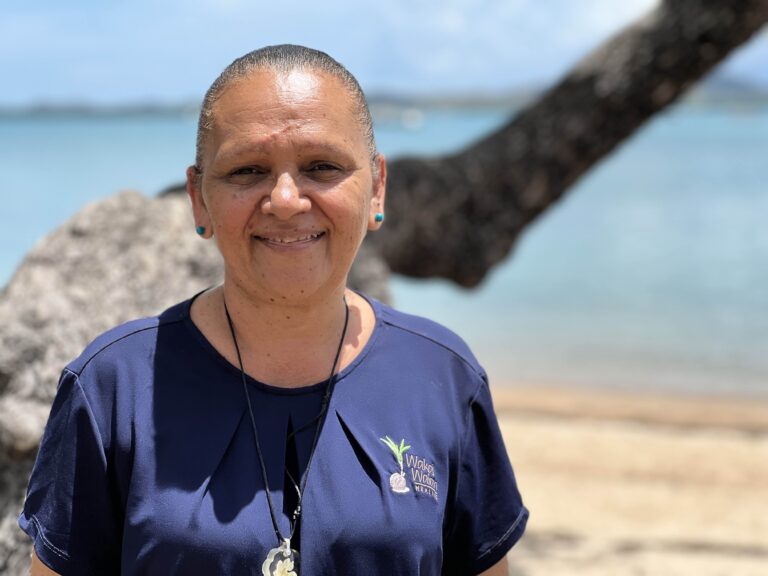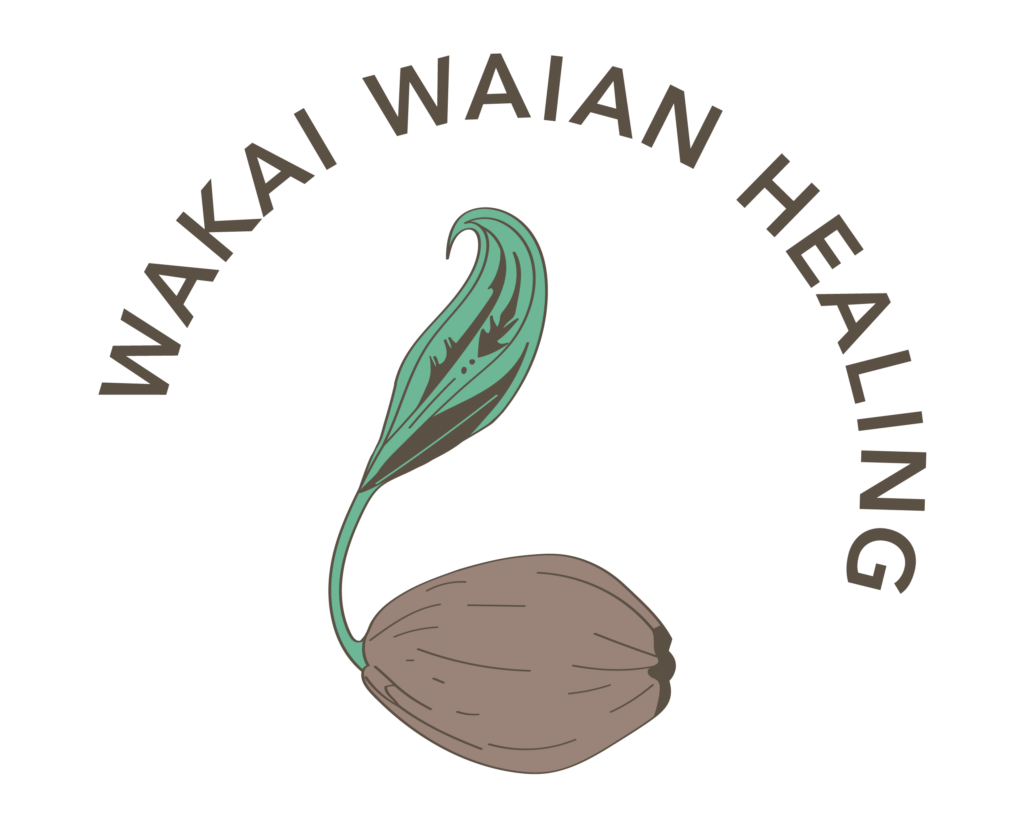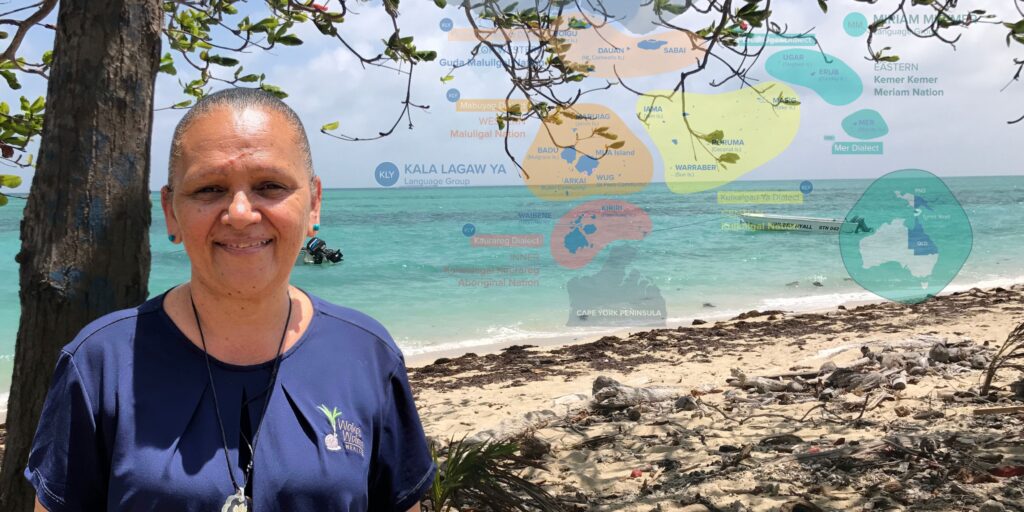
It’s June in the Torres Strait. The Sager wind moves across Waiben (Thursday Island), strong and steady from the southeast. It whips through the coconut palms, carries salt from the sea, and brings a rhythm only islanders truly understand. The Sager season, a time of transition and resilience, is significant in Amanda Majid’s journey. It signals more than weather – it signals transition, movement, and resilience. A new kind of culturally informed clinical leadership is emerging on these winds of change.
Amanda, a proud Torres Strait Islander and Aboriginal woman, has just stepped into her new role as a qualified social worker and mental health clinician. Her story is not just a promotion or celebration; it’s a personal triumph, a beacon of hope, and a powerful reflection of a movement transforming mental health care across the Torres Strait and beyond.
Amanda works at Wakai Waian Healing, a First Nations-led mental health service whose name means “straightening yarn.” This is a regional word from Zenadth Kes that refers to the cultural act of talking through hard things with honesty, care, and accountability – untangling confusion, grief, or conflict to restore clarity and connection. It is a name that speaks directly to Amanda and is her daily work.
A descendant of the Kuku Yalanji, Girramay Tribe, Ugar Sam Sep, Mariam Peibre, Mbabaram and Gimuy Walabarra Yidi peoples, Amanda brings with her the strength of many lineages and the lived experience of someone who has walked both the academic and emotional path to becoming a healer. Her cultural identity is not just a part of her, it’s a source of strength and resilience that guides her healing journey.
“It is rare and deeply satisfying to have a Torres Strait Islander woman step into this role,” says Ed Mosby, CEO of Wakai Waian Healing. “Amanda’s journey is a living example of what it means when we say – Indigenous health is in Indigenous hands.”
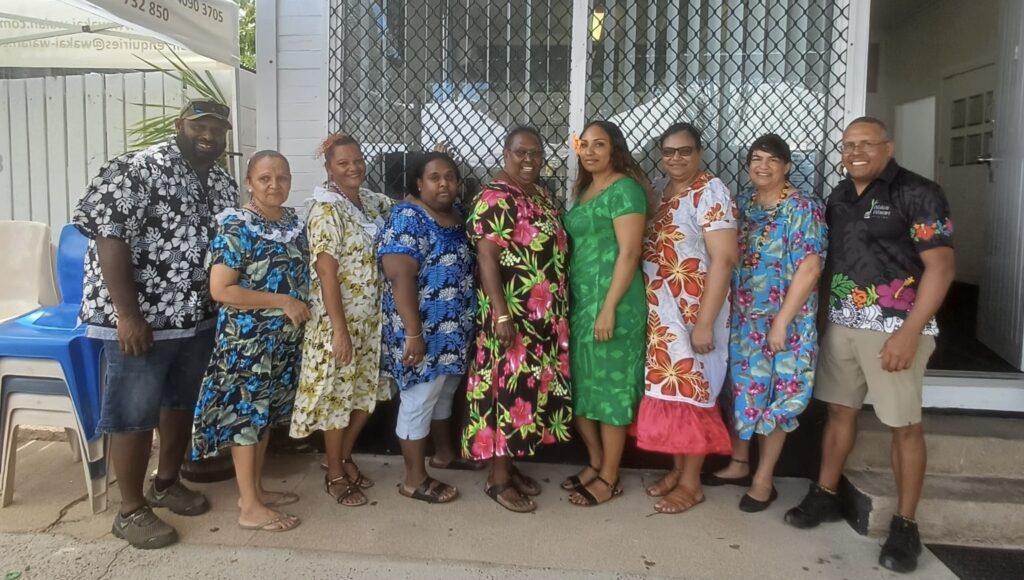
Amanda’s professional path began at James Cook University, where she recently completed her Bachelor of Social Work. A mental health elective lit the spark, but it was her own experience supporting her son through a period of emotional distress that shaped her deeper calling. Amanda’s journey was not without its challenges. She faced academic hurdles and personal struggles, but her determination and resilience saw her through.
“I realised I wanted to be a voice of support for our mob, especially when grief and loss are still such heavy parts of our daily reality,” Amanda shares. “Their story might be my story.”
In a place as culturally rich and complex as the Torres Strait, the role of a social worker takes on a uniquely powerful dimension. It is not just about delivering clinical expertise but doing so in a way that honours ancestral knowledge, island customs and spiritual connections. Here, healing happens at the intersection of cultural identity, professional skill and lived experience. Amanda stands at that intersection, walking in both worlds. Her presence ensures that mental health support is technically sound and culturally safe, allowing clients to feel seen, heard and understood on their own terms.
Historically, the social worker’s role in Torres Strait Islander communities was never written down but deeply understood. It was carried by Elders, aunties, uncles and traditional healers, who offered guidance, emotional support and spiritual protection. These roles were performed through story, ceremony, kinship and cultural law. Care was community-wide, and wellness was relational. Today, Torres Strait Islander clinicians like Amanda are carrying those traditions forward within the modern practice – creating bridges between old ways and new systems.
At Wakai Waian Healing, this cultural foundation is central to delivering care. Amanda’s journey also speaks directly to the heart of the Organisation’s Community and Culture Mentor Group (CCMG). The CCMG was formed to guide, nurture and walk alongside the First Nations workforce – ensuring that culture is respected and actively upheld in every part of our practice. Amanda’s degree and clinical work reflect the CCMG’s purpose.
“Amanda embodies the kind of leadership we are cultivating – deeply rooted in cultural identity, shaped by lived experience, and rising with professional excellence,” says Julyess Jarvis, CCMG Co-Chair at Wakai Waian Healing. “Her journey is a powerful reminder of why we are building our own Cultural Governance Framework – one that places cultural mentoring, community accountability, and story-led healing at the centre of everything we do. Our future depends on leaders like Amanda, who carry strength, spirit and integrity into every step of this work.”
The Wakai Waian service is guided by four cultural values: Upasin (Respect), Minaral (Spirit), Waku (Strength) and Inar (Support). These values form the backbone of a healing model that reflects Torres Strait Islander worldviews. Upasin teaches deep listening and relational conduct. Minaral honours the spiritual nature of healing. Waku draws on resilience built through connection to identity and Country. Inar speaks to the power of lifting each other up, especially in times of struggle. For Amanda, these values are not just words but lived practices. They shape how she walks alongside clients in their healing journeys. Her promotion and pay rise at the Thursday Island office is part of Wakai Waian Healing’s broader strategy to support and elevate First Nations clinicians. The service has built a cultural and professional development pathway that supports emerging practitioners from placements to leadership.
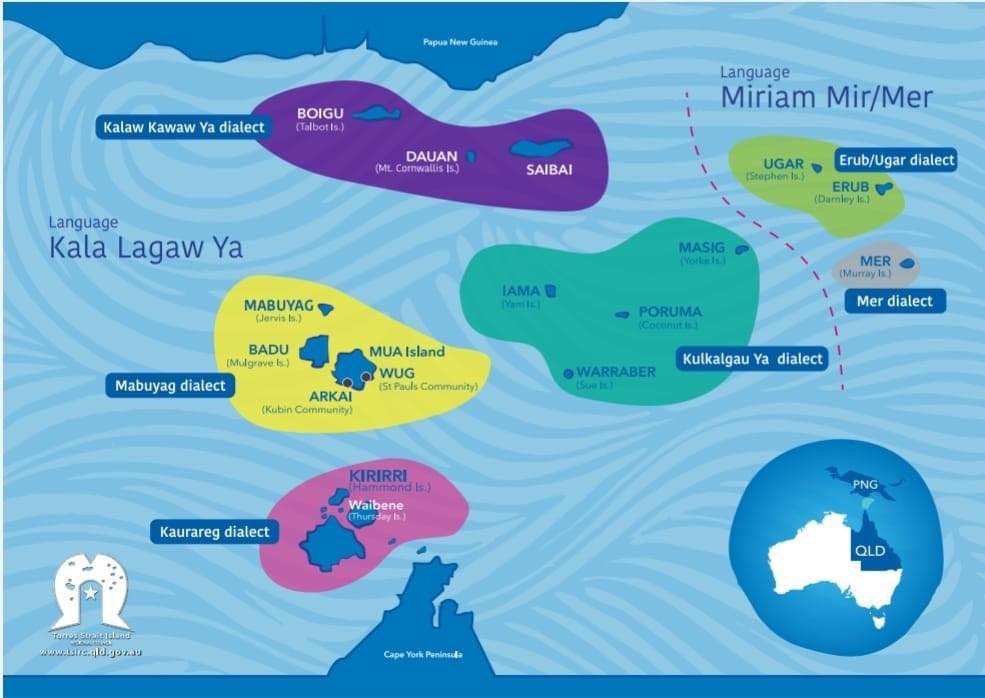
“This is why we nurture the next generation,” says Team Leader Shanna Mosby. “Amanda is exactly the grounded, community-minded clinician our people deserve.”
The significance of Amanda’s success cannot be overstated. According to the most recent Australian Institute of Health and Welfare report, Aboriginal and Torres Strait Islander peoples are nearly three times more likely to experience high or very high levels of psychological distress than non-Indigenous Australians. Suicide rates remain disproportionately high, especially in remote and island communities. There is a pressing need for culturally safe, community-led mental health care. Amanda is part of the answer. She has already begun counselling sessions with respected and senior social worker Elder Aunty Ivy, who supports clients on the outer islands. Often, these are voice-only sessions without body language or eye contact.
“That is where I have really learned what it means to listen deeply,” Amanda says.
Outside of work, Amanda stays grounded through simple joys – camping, cooking and craftwork with family. These moments of connection remind her of the importance of kinship and community in healing.
“My dream is to become a trusted figure in the community. A safe space. Someone people can yarn with and feel seen and heard.”
Amanda’s story is one of hope but also fierce determination. The memory of friends and family lost to mental health challenges fuels her commitment. Her presence at Wakai Waian Healing is a light for others navigating pain, grief and trauma. In her own words:
“We can create a brighter future, one story at a time.”
Amanda Majid is not just part of the change but leading it.

